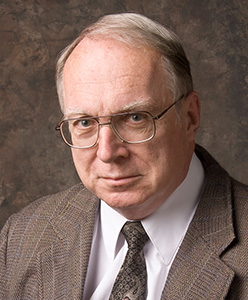
In early September, there was a picture widely disseminated on the Internet that showed a small boy lying facedown on a Turkish beach. He almost looked as though he were taking a nap. But he was not. He drowned with his mother and an older sibling in an attempt to flee the violence in Syria and find refuge in Europe. His name was Alan Kurdi, and he was 3 years old.
Alan’s story mirrors what has been happening on the southern border of the United States. According to Smithsonian magazine, more than 6,000 people, many of them children, have died trying to cross the US-Mexican border since 2000. Many children have died in the desert in flight from gang violence in their home countries.
Who are these migrants? They are the small merchant who has witnessed the beheading of a journalist; the peasant whose farm has been bankrupted by “free” trade policy; the 12-year-old boy who is in imminent danger of being forcibly recruited into a terrorist group; the 11-year-old girl whose family has been told she is to be the “girlfriend” of gang members.
The fact is that migrants are desperate — they are just trying to survive. No one casually leaves home to engage in a dangerous journey of several hundred (or thousand) miles across water or desert into an uncertain future. The appropriate response to desperate people is compassion, not rejection.

|
| Refugees listen to a translator as they arrive at a transit camp in Idomeni, Greece, on the border of Macedonia. Thousands of refugees are arriving into Greece from Syria, Afghanistan, Iraq, and other countries, before traveling further into Europe CNS photo/Paul Haring |
The opposite of compassion is both fear and indifference. There is fear that the influx of refugees will change our “way of life.” There is indifference in a sign seen in California, greeting busloads of children who crossed the border fleeing violence: “Not our children; not our problem.”
In contrast to this attitude, Pope Francis, in his message for the World Day of Migrants and Refugees, said, “The tragic stories of millions of men and women daily confront the international community as a result of the outbreak of unacceptable humanitarian crises in different parts of the world. Indifference and silence lead to complicity whenever we stand by as people are dying of suffocation, starvation, violence, and shipwreck. Whether large or small in scale, these are always tragedies, even when a single human life is lost.”
In his homily on the island of Lampedusa in the summer of 2013, in response to the drowning of more than 360 migrants trying to cross the Mediterranean to Europe, the pope said, “These brothers and sisters of ours were trying to escape difficult situations to find some serenity and peace; they were looking for a better place for themselves and their families, but instead they found death. How often do such people fail to find understanding, fail to find acceptance, fail to find solidarity. And their cry rises up to God!”
The people of the United States must, if they are to be true to their own best traditions, open their hearts and society to these desperate people. In Matthew 25, Jesus marks as one of the characteristics of the blessed: “I was a stranger and you welcomed me.” We need to offer places to house refugees in the most vulnerable circumstances in resettlement programs — or temporary visas — in Europe, the United States, and other countries.
The day he was murdered, Blessed Archbishop Óscar Romero presided at Mass for the mother of a friend in a hospital called “La Divina Providencia.” He told of her (largely hidden) service to family and neighbors. After the homily, as he was approaching the altar, he paused, turned back to the congregation, and said, “Everyone can do something.”
We need to reach out to migrants, befriend them, strive to understand the issues, and advocate on their behalf. They are voiceless. We need to be their voice.
In the United States, the Jesuit Refugee Service has been at the forefront of advocacy for migrants and refugees across the world. The Kino Border Initiative is an effective and multi-faceted service for migrants on both sides of the US-Mexican border. The office of Migration and Refugee Services of the United States Conference of Catholic Bishops continues to be a source of information and advocacy on these issues. The Bishops’ Conference’s Justice for Immigrants program provides many opportunities to learn and become involved.
Everyone can do something.
Return to Partners Fall Winter 2015 Index